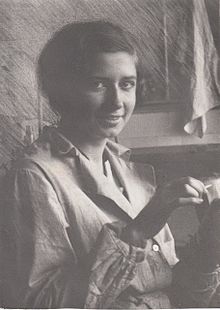A young French Red Cross doctor working in rural Poland in 1945 with war survivors is summoned to a nearby convent to help a young woman enduring a prolonged breech labor. The doctor, Mathilde, delivers the baby by caesarean, saving the lives of both mother and child. The nuns tell her they took the young woman in after her family turned her out, but Mathilde soon discovers that she was one of the nuns, and that most of the others – the younger ones – are also in the late stages of pregnancy. It seems the Soviet Army has been through, in more ways than one.
Mathilde is willing to help, but some of the nuns are so paralysed with shame they can’t even bring themselves to let her examine them. Mother Superior reluctantly agrees to let her help, on condition she keep their secret, saying if it gets out it’ll be the end of the convent and a bleak future for the nuns, not to mention the babies.
Mother claims to have found a home for the first baby with the young nun’s extended family, but what about when the rest of them are born? This is a theme that grows in importance as the story unfolds.
There is much to admire in this French/Polish co-production. The grim setting of postwar Poland in winter is convincingly evoked: the hungry orphans, the traumatised survivors, the brutalised soldiers, the dark forests full of menace. Mathilde and her boss, an embittered Jewish doctor whose family has vanished in the holocaust, grab fleeting moments of warmth and comfort together drinking and dancing to gypsy music in the local tavern, followed by sex which has to be surreptitious because her landlord will kick her out if he hears them.
For most of its length the story seems authentic and I wasn’t surprised to learn that it was based on the real-life memoir of a French doctor called Madeleine Pauliac, who was thirty-three in 1946, and so must have died soon after the events recounted here.

Lou de Laage, the actress playing Mathilde, looks barely old enough to be a medical student, let alone a doctor with several years experience behind her. She was playing a 17-year-old in Breathe in 2014; two years later, with a screen age of 19, she’s playing a qualified, experienced doctor…!? The film was written and directed by women so you’d think they’d know better. Seriously.
Mathilde’s age was the first niggle for me, but more problematic is the way the filmmakers have chosen to end the story. No spoilers, but where the emotional heft of the story has been underpinned throughout by the deep shame felt by these devoutly religious women over their physical violation, suddenly that underpinning is taken away and we get something akin to a fairytale ending. I’d love to know what the truth was.
This review was first published on Facebook in May 2017

